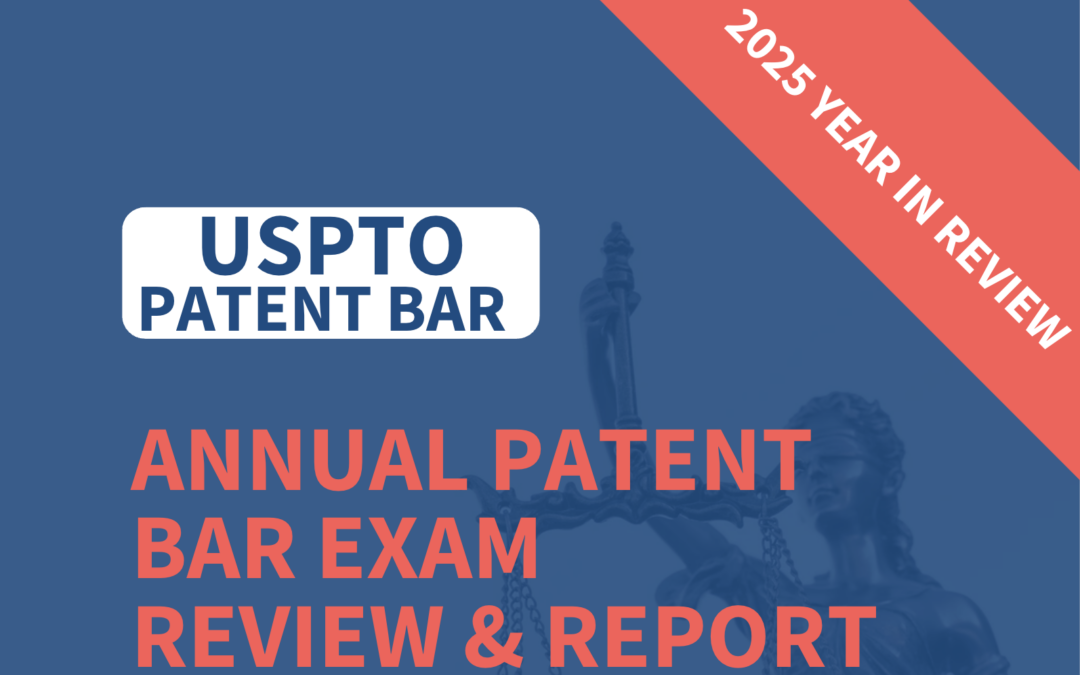The nondisparagement clause is an essential component of patent law that deserves thorough exploration. This article aims to shed light on the intricacies surrounding this clause, its purpose, and its implications in patent disputes. Additionally, we will delve into the connection between the nondisparagement clause and the Manual of Patent Examining Procedure (MPEP) as well as its impact on the Patent Bar. Lastly, we will ponder the future of this clause and examine potential changes that may lie ahead.
Understanding the Nondisparagement Clause
The nondisparagement clause, also known as the non-disparagement agreement, is a contractual provision designed to prevent parties involved in a patent agreement from making public or private statements that could harm the reputation or interests of the other party. This clause is often included in patent licensing agreements, research and development contracts, and other patent-related contracts.
Definition and Purpose of the Nondisparagement Clause
At its core, the nondisparagement clause prohibits parties from making negative or derogatory statements about the other party involved in the patent agreement. Its purpose is to maintain a positive and professional relationship between parties by fostering trust and preventing unnecessary conflict. By ensuring that both parties refrain from publicly undermining the other’s reputation, the nondisparagement clause creates a harmonious environment for patent holders and licensees to collaborate.
For example, imagine a scenario where Company A has developed a groundbreaking patent, and Company B, a licensee, is responsible for manufacturing and distributing the patented product. Without a nondisparagement clause, Company B could publicly criticize the quality of the product or the business practices of Company A, damaging their reputation and potentially affecting sales. However, with the inclusion of a nondisparagement clause, both parties are contractually obligated to maintain a positive image, fostering a mutually beneficial relationship.
Legal Implications of the Nondisparagement Clause
From a legal standpoint, the inclusion of a nondisparagement clause can provide both proactive and reactive benefits. Proactively, this clause establishes clear guidelines for parties to follow, reducing the risk of misunderstandings or miscommunication. Parties can have peace of mind knowing that they are bound by a contractual obligation to refrain from making harmful statements.
Reactively, if one party violates the nondisparagement clause, the aggrieved party may have grounds for legal action, seeking remedies such as damages or injunctive relief. This legal recourse ensures that parties are held accountable for their actions and discourages any potential breach of the agreement.
However, it is important to note that the enforceability of the nondisparagement clause may vary depending on the jurisdiction and the specific wording used in the agreement. Different legal systems may have different interpretations of what constitutes a disparaging statement and may impose limitations on the scope of the clause. Therefore, consultation with legal professionals experienced in patent law is prudent to ensure compliance with applicable laws and maximize the enforceability of the clause.
Furthermore, the inclusion of a nondisparagement clause in patent agreements is not limited to protecting reputations alone. It also serves to safeguard the interests of both parties involved. By preventing negative statements, the clause helps maintain the value and marketability of the patented product or technology. This is particularly crucial in industries where public perception and reputation play a significant role in the success of a product or company.
Additionally, the nondisparagement clause can act as a deterrent against potential disputes. By setting clear expectations regarding communication and public statements, parties are more likely to engage in open and constructive dialogue, minimizing the likelihood of conflicts arising from misunderstandings or misinterpretations.
In conclusion, the nondisparagement clause is a valuable provision in patent agreements that aims to foster positive relationships, protect reputations, and prevent unnecessary conflicts. Its inclusion provides legal protection and establishes clear guidelines for parties to follow, ensuring a harmonious and productive collaboration between patent holders and licensees.
The Role of the Nondisparagement Clause in Patents
The nondisparagement clause plays a crucial role in upholding patent rights and protecting the interests of both patent holders and licensees. By promoting respectful and constructive communication, this clause helps maintain a favorable environment for innovation and collaboration within the patent ecosystem.
When it comes to patents, the nondisparagement clause serves as a powerful tool for maintaining a positive reputation. In a highly competitive market, where intellectual property is fiercely protected, the reputation of patent holders can significantly impact their success. The nondisparagement clause safeguards the reputation of patent holders, preventing unauthorized statements that may tarnish their brand or adversely impact licensing negotiations.
Imagine a scenario where a patent holder has invested years of research and development into a groundbreaking technology. The nondisparagement clause ensures that both parties refrain from negative commentary, thereby enhancing the perceived value and marketability of the patented technology. This, in turn, safeguards the interests of the patent holder and creates a conducive environment for further innovation.
How the Nondisparagement Clause Protects Patent Rights
In the realm of patents, a strong reputation is vital. The nondisparagement clause safeguards the reputation of patent holders, preventing unauthorized statements that may tarnish their brand or adversely impact licensing negotiations. By ensuring that both parties refrain from negative commentary, this clause enhances the perceived value and marketability of the patented technology, consequently safeguarding the interests of the patent holder.
Moreover, the nondisparagement clause also promotes fairness and transparency in patent licensing agreements. By discouraging disparaging remarks, it encourages all parties involved to focus on the merits of the technology and the terms of the agreement, rather than engaging in harmful rhetoric. This fosters an atmosphere of trust and collaboration, allowing for smoother negotiations and a higher likelihood of mutually beneficial outcomes.
Case Studies: Nondisparagement Clause in Patent Disputes
Real-world case studies serve as compelling illustrations of the importance and impact of the nondisparagement clause in patent disputes. Take, for example, a scenario where a patent licensing agreement includes a nondisparagement clause. If one party were to violate this clause by making false and damaging statements about the patent holder, it could not only harm the patent holder’s reputation but also provide grounds for a breach of contract claim. Such cases highlight the tangible consequences that may arise when parties fail to abide by the nondisparagement clause.
In a high-stakes patent dispute, where millions of dollars and years of research are at stake, the nondisparagement clause can be a critical factor in resolving conflicts. By imposing a duty of respect and professionalism, it encourages parties to focus on the legal merits of their claims and defenses, rather than engaging in personal attacks or harmful rhetoric. This promotes a fair and objective evaluation of the dispute, allowing for a more efficient resolution.
Furthermore, the nondisparagement clause can also serve as a deterrent against frivolous litigation. Parties who know that making disparaging remarks about the other party can have legal consequences are less likely to engage in baseless accusations or inflammatory statements. This helps streamline the patent litigation process, reducing the burden on courts and allowing for a more efficient allocation of resources.
In conclusion, the nondisparagement clause is a crucial component of patent licensing agreements. By promoting respectful communication and safeguarding the reputation of patent holders, it plays a vital role in maintaining a favorable environment for innovation and collaboration within the patent ecosystem. Through case studies, we can see the tangible impact of this clause in protecting patent rights and ensuring a fair and objective evaluation of disputes. As the world of intellectual property continues to evolve, the nondisparagement clause will remain an essential tool in upholding the integrity of patent rights.
The MPEP and Its Connection to the Nondisparagement Clause
For a comprehensive understanding of the nondisparagement clause’s relevance and impact, we must explore its connection to the MPEP. The MPEP is a vital resource for patent examiners, patent applicants, attorneys, and those seeking to gain knowledge about the patent process.
An Overview of the Manual of Patent Examining Procedure (MPEP)
The MPEP serves as a guidebook to patent examiners in the United States Patent and Trademark Office (USPTO). It outlines the rules, regulations, and procedures governing the examination of patent applications. Additionally, the MPEP provides guidance on various aspects of patent law, including the nondisparagement clause.
The MPEP’s Guidelines on the Nondisparagement Clause
Within the MPEP, there are specific sections that address the nondisparagement clause and its implications. Patent examiners rely on these guidelines when reviewing patents and assessing their compliance with the nondisparagement clause. Understanding these guidelines is crucial for both patent holders and licensees, as it can help prevent unnecessary delays and disputes during the examination process.
The Patent Bar and the Nondisparagement Clause
The Patent Bar, consisting of registered patent attorneys and agents, plays a vital role in the patent prosecution and examination process. It is important to consider the Patent Bar’s interpretation of the nondisparagement clause and its impact on patent-related matters.
The Patent Bar’s Interpretation of the Nondisparagement Clause
Patent attorneys and agents, as members of the Patent Bar, must be well-versed in patent law and its nuances. Their expertise includes assessing the implications of various contractual provisions, including the nondisparagement clause. Patent professionals provide invaluable guidance to their clients regarding the enforceability and implications of this clause, helping them navigate potential legal pitfalls.
The Impact of the Nondisparagement Clause on Patent Bar Examinations
Aspiring patent attorneys must demonstrate their knowledge of patent law by passing the Patent Bar Examination. This examination tests their understanding of various legal aspects related to patents, including the implications of the nondisparagement clause. By requiring candidates to comprehend and apply the principles surrounding this clause, the examination ensures that successful candidates are well-prepared to navigate the complexity of patent law in their professional careers.
The Future of the Nondisparagement Clause in Patent Law
As the landscape of patent law continually evolves, it is essential to consider the potential changes and implications that the future holds regarding the nondisparagement clause.
Potential Changes and Their Implications
In the dynamic world of intellectual property, it is plausible that the nondisparagement clause may witness adjustments, reflecting the changing needs and expectations of the patent ecosystem. Potential changes could include more specific language addressing online disparagement or provisions that govern consequences for violations. These changes could serve to further strengthen the effectiveness and enforceability of the nondisparagement clause.
Expert Opinions on the Future of the Nondisparagement Clause
To gain insight into the future of the nondisparagement clause, it is vital to consult experts in the field. Industry-leading patent attorneys, scholars, and professionals provide valuable perspectives on potential trends and developments. Their opinions can shed light on how the nondisparagement clause may evolve and the impacts it may have on the patent landscape in the coming years.
By delving into the intricacies of the nondisparagement clause, its role in patents, and its connection to the MPEP and the Patent Bar, we gain a comprehensive understanding of this critical aspect of patent law. As we contemplate the future, it is essential to consider potential changes and expert opinions to navigate the evolving patent landscape successfully.










